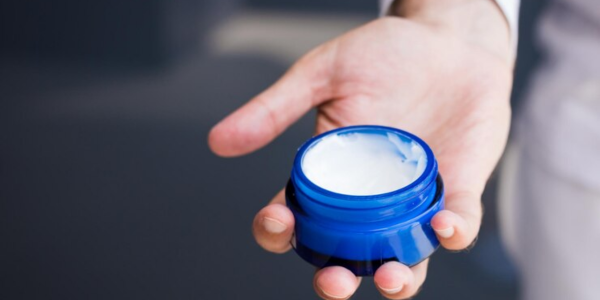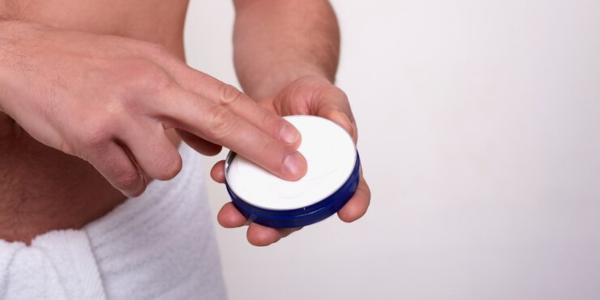Vicks VapoRub for Prostate Health: Benefits, Risks & Facts
Vicks VapoRub for Prostate Health: Myth, Misunderstanding, or Medical Breakthrough?

In the ever-expanding universe of home remedies where kitchen cabinets double as pharmacies and age-old folklore battles, modern science few claims have sparked as much curiosity and skepticism as the idea of using Vicks VapoRub for prostate health.
In today’s era of viral life hacks, Reddit threads, and alternative wellness influencers, it seems no product is immune from being reimagined as a miracle cure. One surprising contender making the rounds? Vicks VapoRub.
Best known for relieving coughs and nasal congestion, this mentholated ointment has recently found itself at the center of an internet-fueled rumor mill.
Some claim that applying Vicks near the pelvis or more specifically, the perineum can reduce inflammation, ease urinary symptoms, and even support overall prostate health.
But is there any truth to these bold assertions? Can rubbing a topical ointment near your groin actually improve prostate function or is this just another internet myth gone viral?
In this post, we’ll take a deep dive into this unconventional claim. We’ll explore what’s driving the trend, investigate the science (or lack thereof), examine the potential risks, and provide medically sound advice for men genuinely interested in improving their prostate health.
What Is Vicks VapoRub and What Is It Supposed to Do?
Before diving into the prostate claims, it’s worth reviewing what Vicks VapoRub actually is. Developed in the late 1800s, this over-the-counter topical ointment has become a household name, especially during cold and flu season.
Key Ingredients:
- Camphor (4.8%) – A cough suppressant and topical analgesic.
- Menthol (2.6%) – Another cough suppressant, often used to relieve minor pain and irritation.
- Eucalyptus Oil (1.2%) – Believed to relieve cold symptoms and promote easier breathing.
These ingredients are combined into a petroleum jelly base. You’re supposed to rub it on your chest, throat, or back to relieve coughing or on muscles to reduce soreness. It’s never been FDA-approved for internal use, and it’s clearly labeled for external use only.
Where Did the Prostate Rumors Come From?
So how did Vicks VapoRub go from a cold remedy to a supposed prostate health hack?
Like many fringe health claims, this one appears to have originated from online forums, YouTube videos, and anecdotal testimonials rather than any clinical evidence.
The theory is that applying Vicks VapoRub to the perineum (the area between the anus and the scrotum) can relieve symptoms of benign prostatic hyperplasia (BPH) , a non-cancerous enlargement of the prostate that affects many men over 50.
These anecdotal claims typically cite relief from:
- Frequent nighttime urination
- Difficulty starting or stopping urine flow
- A feeling of incomplete bladder emptying
- Pelvic or lower back discomfort
The suggestion is that the tingling, cooling sensation from Vicks helps relax the muscles in the pelvic region or somehow stimulates blood flow to the prostate area.
But… is there any science to back that up?
The Science: What We Know (and What We Don’t)
No Clinical Studies Support This Use
- To date, no peer-reviewed studies have investigated the effects of Vicks VapoRub on the prostate.
- There are no trials, no clinical data, and no mechanistic studies supporting the idea that its ingredients camphor, menthol, and eucalyptus impact prostate function in any meaningful way.
The Prostate Is an Internal Organ
- The prostate gland is located internally, just below the bladder and in front of the rectum. It’s not something you can reach with a topical ointment.
- While the perineal area is adjacent to the prostate, rubbing something on the skin does not allow it to penetrate deep enough to interact with or affect the gland directly.
Neurological Effects? Highly Unlikely
- Some proponents argue that the cooling effect of menthol may “stimulate nerves” or “relieve tension” in the area. But this is speculative at best.
- While menthol can affect sensory nerves on the skin’s surface (hence the cooling), there is no evidence that it alters deeper autonomic functions related to urination or prostate health.
What the Medical Community Thinks?
Urologists and medical experts remain skeptical and for good reason.
“I’ve had patients ask me about Vicks on the perineum, and I explain that there’s simply no evidence it helps the prostate. If anything, it might cause skin irritation,” says Dr. Saul Marcus, a functional medicine practitioner specializing in men’s health.
Dermatologists echo similar concerns. Menthol, camphor, and eucalyptus oil can all cause allergic reactions, burning sensations, or even chemical burns especially when used on sensitive areas.
There is no medical or scientific basis for using Vicks VapoRub to improve prostate health.
What Are the Real Risks?
Let’s be clear, using Vicks in unintended ways can lead to real harm.
1. Skin Irritation and Burns
Applying Vicks to sensitive areas like the perineum can cause:
- Redness
- Itching
- Burning
- Blistering
In rare cases, people have even reported second-degree burns from misuse.
2. Disruption of the Skin Barrier
The petroleum base can trap moisture and bacteria, increasing the risk of infections especially if there are microscopic tears in the skin.
3. False Sense of Security
Perhaps most importantly, relying on Vicks for prostate symptoms might delay proper diagnosis of a potentially serious condition like:
- Benign Prostatic Hyperplasia (BPH)
- Prostatitis
- Prostate cancer
Self-treating with internet remedies instead of seeing a doctor can be a dangerous detour.
What Actually Works for Prostate Health?
Instead of chasing unproven shortcuts, here are evidence-based strategies for maintaining a healthy prostate:
1. Diet Matters
- Eat cruciferous vegetables like broccoli and kale.
- Include lycopene-rich foods such as tomatoes and watermelon.
- Choose healthy fats, olive oil, nuts, fatty fish.
2. Exercise Regularly
Physical activity improves circulation and reduces inflammation, both of which benefit prostate health. Aim for:
- 150 minutes/week of moderate cardio
- Pelvic floor exercises (Kegels) to support bladder control
3. Stay Hydrated but Smartly
Avoid drinking excessive fluids at night to reduce nocturia. Reduce caffeine and alcohol intake, which can irritate the bladder.
4. Limit Red Meat and Processed Foods
Diets high in saturated fat and processed foods are linked to a higher risk of prostate problems.
5. Supplements with Some Evidence
Some supplements have shown modest benefits in studies:
- Saw Palmetto
- Beta-sitosterol
- Pygeum
- Zinc
Always consult with a physician before starting any supplement regimen.
6. See Your Doctor
For men over 50 or earlier if you have risk factors regular prostate exams and PSA testing are essential.

Understanding Prostate Conditions
Before considering unconventional treatments, it’s essential to understand the nature of prostate-related disorders.
Common Prostate Conditions:
Benign Prostatic Hyperplasia (BPH)
- Age-related enlargement of the prostate
- Can cause urinary frequency, urgency, weak stream
- Treated with medications like alpha-blockers and 5-alpha-reductase inhibitors
Prostatitis
- Inflammation, often painful
- May be bacterial or non-bacterial
- Symptoms include pelvic pain, painful urination, and erectile dysfunction
Prostate Cancer
- Often symptomless in early stages
- May lead to blood in urine/semen, bone pain in advanced stages
- Requires specialized medical treatment
Using home remedies like Vicks may mask symptoms, leading individuals to ignore early warning signs.
The Role of Functional Medicine
We take a root-cause, integrative approach to men’s health. Instead of simply masking symptoms, we dig deeper into your:
- Hormonal balance
- Inflammation levels
- Gut health
- Nutritional status
- Environmental exposures
We help you optimize your prostate health naturally using science-backed protocols, personalized plans, and medical supervision. And no, Vicks isn’t part of that plan.
Safe, Effective Ways to Support Prostate Health
1. Get Regular Screenings
Especially after age 50 or age 40 if there’s a family history, talk to your doctor about PSA testing and digital rectal exams.
2. Follow a Prostate-Healthy Diet
Research supports that diets high in antioxidants, healthy fats, and fiber may lower prostate cancer risk. Focus on:
- Tomatoes (lycopene)
- Broccoli and cruciferous vegetables
- Green tea
- Pumpkin seeds
- Omega-3 fatty acids
3. Stay Physically Active
Moderate exercise (at least 150 minutes/week) has been shown to reduce BPH symptoms and lower inflammation markers.
4. Manage Stress
Chronic stress elevates cortisol, which may indirectly impact prostate inflammation. Mindfulness, yoga, and therapy can help.
5. Use Clinically Approved Supplements
Some evidence-based supplements include:
- Saw Palmetto
- Beta-sitosterol
- Pygeum
- Zinc
Always consult your doctor before starting any supplement regimen.
Final Verdict
The internet is a powerful tool for health exploration, but it’s also a breeding ground for misinformation.
While the cooling sensation of Vicks VapoRub may offer fleeting comfort, there is no scientific evidence to suggest it can support or improve prostate health.
Here’s what to remember:
- Vicks VapoRub is for cold symptoms, not internal organs.
- Prostate health requires internal, not external, treatment approaches.
- Always consult a healthcare provider for lasting relief.
If you’re experiencing any urinary or pelvic symptoms, don’t reach for a jar of Vicks reach out to a qualified healthcare provider.

.